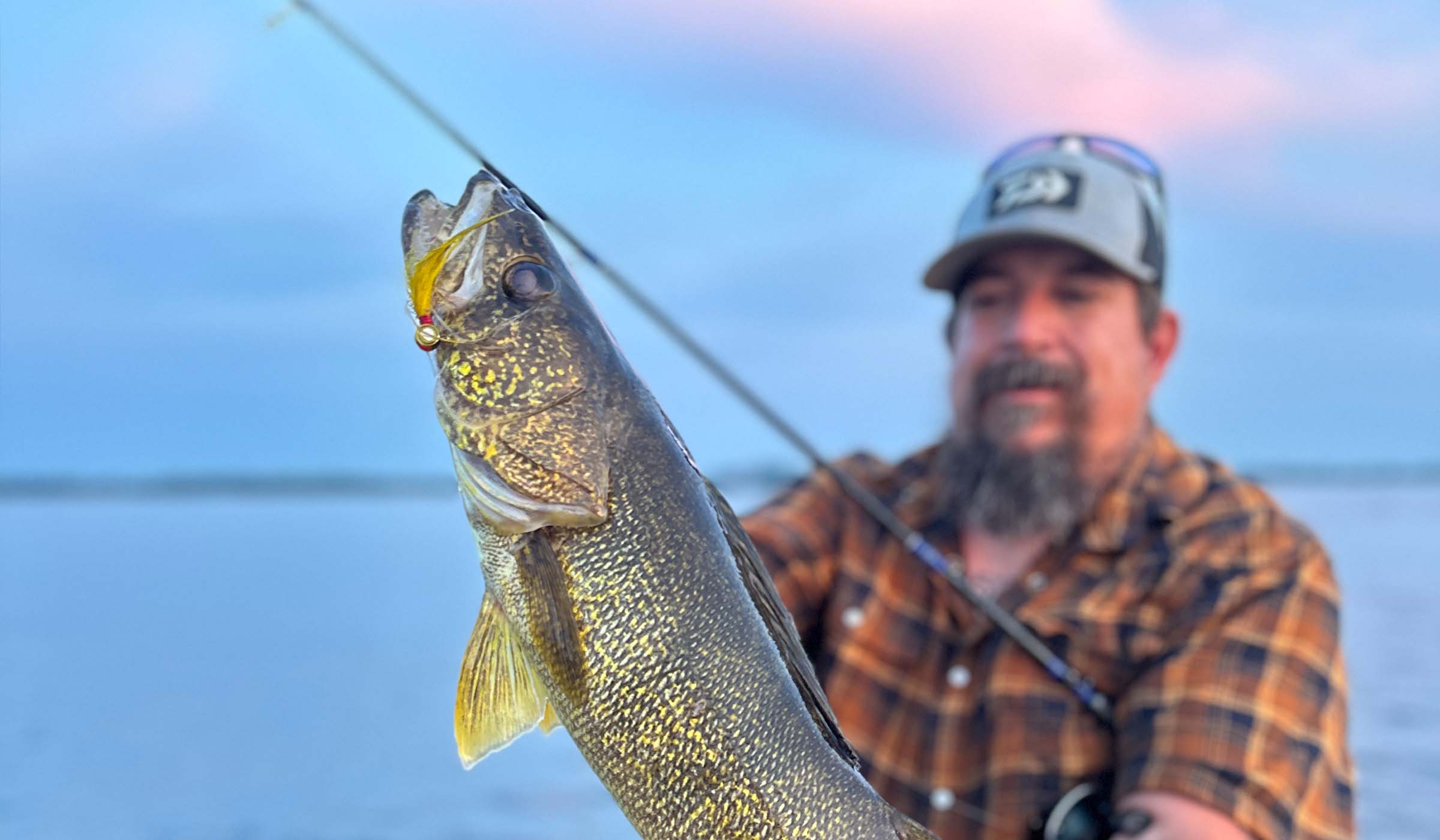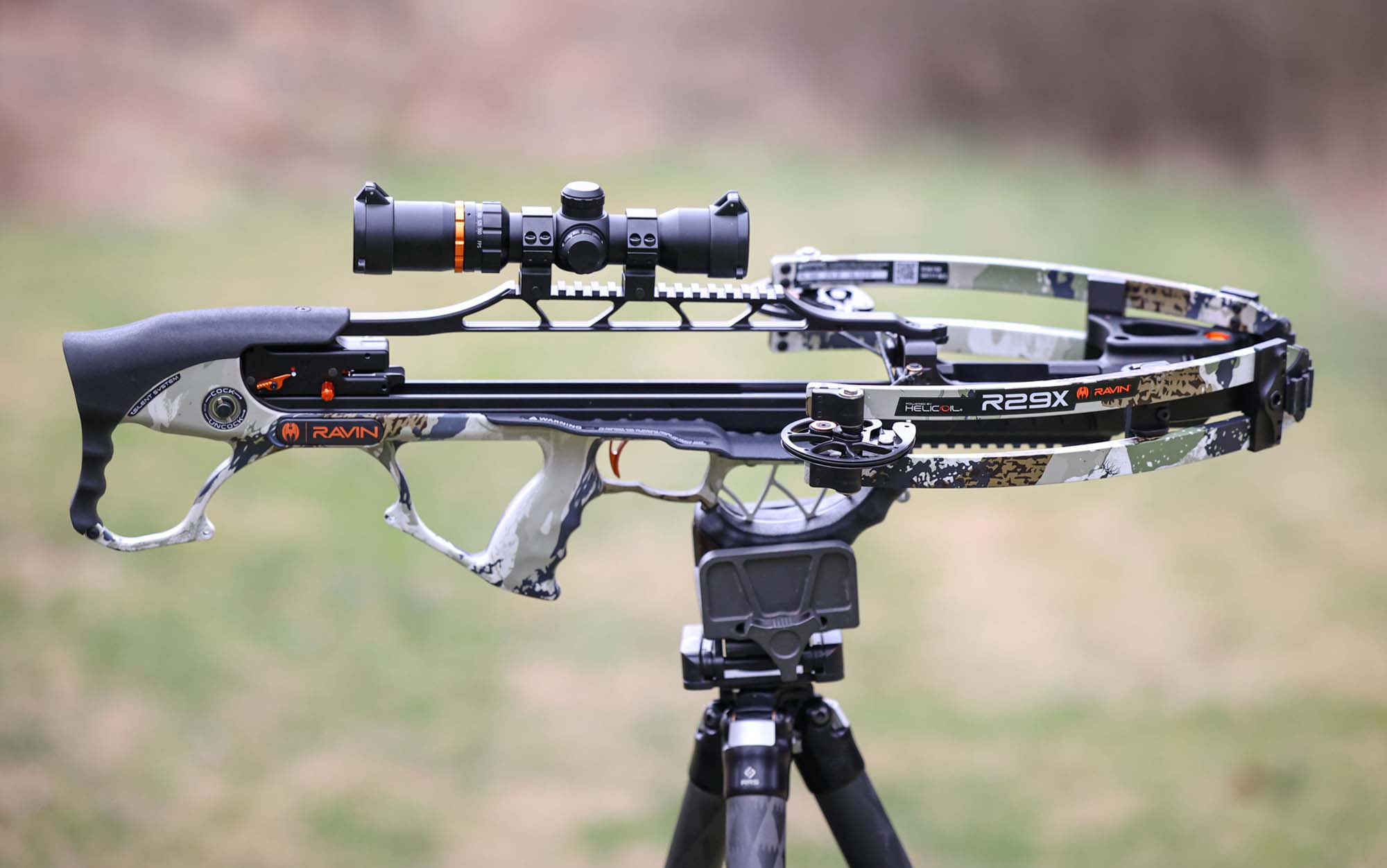Before We Shipped Out to Fight in WWII, We Went Fishing

This story, “Bayou Blitz, appeared in the February 1943 issue of Outdoor Life. Woolner wrote extensively about the Third Armored Division, which was later nicknamed the “Spearhead” for its heavy combat tour and role in liberating France, Belgium, and Germany during World War II. Every soldier in the unit saw combat, according to Woolner, and suffered heavy casualties. Of those nearly 10,000 casualties in the Third Armored Division during WWII, 2,147 men were killed in action. This is a story about their final days in the U.S. before shipping abroad.
In the Army you learn darn quick to discount rumors. Nevertheless, Slim and I suspected a germ of truth in this latest story because it claimed we were moving out, and right then, considering the circumstances, we didn’t want to go anywhere.
But the sergeant said, “Probably Texas,” and the corporal in charge of recruits guessed California. The rookies — Slim and I were rookies, having only recently been sent to the Third Armored (“Bayou Blitz”) Division, in Louisiana — the rookies whispered about such far off horrors as Libya and India. You could take your choice, as a matter of fact, and you’d probably be wrong, for the Army does not peddle its secrets.
However, the Commanding Officer was observed to be working at his desk late into the night, growling at his pale clerks. Something was in the wind.
“We’ll move, all right,” Slim said. “Everything happens to us.”
Slim is six-foot-three of upstate New York. Where he comes from, a man ain’t a man until he can drop a bass plug just two inches this side of a lily pad, and then work the lure until it absolutely seduces the big old boys of fishdom.
“Looks bad,” I said, shoving a clean patch through the bore of my Tommy gun. “Look’s like no fishing for us.” I squinted through the barrel and began to assemble the piece: bolt, bronze lock, plunger spring and plunger.
Just two months before I’d been back in New England, my own base for operations; the land where men once carried a Bible in one hand and a fishing rod in the other — still do, for that matter, and derive great benefit from both.
Outside, clear in the Louisiana night, a bugle sounded “lights out.” Simultaneously some guy stuck his head through the flap of our tent and howled:
“Private Woolner!”
“That’s me, Joe.”
“Telephone call, at the message center.” The head ducked out as abruptly as it had entered.
“Another one,” Slim groaned, “and us moving out to war!”
Another “come fishing” call! Several days before I had, in a moment of sheer brilliance, written to the sporting editor of a Louisiana newspaper in the hope of obtaining information about bass. The editor had obliged by printing a small notice to the effect that two Northern sportsmen-soldiers wanted to go fishing. Immediately fishermen, and fisherwomen, began to write and phone us invitations to share their sport.
It was March at the time, but of course you must remember that the March of Louisiana is not like that of Eastern America. Down in the green parishes neither time nor tide affect the bass fisherman; he cleaves to his sport with a joyous doggedness, and, because nature is kind, the bayou-state angler is able to take his full quota of largemouths throughout practically every month in the year.
Slim and I had been delighted. The only obstacle in sight was the matter of selecting the finest of these offers. Now, additional woe had come to us in the form of the “move out” rumor.
Sergeant Beckman, at the message center, handed me the phone.
“Private Woolner speaking.” “Private Woolner, my name is Barney Montgomery. I want you to come a-fishin’ with me.”
“I’d be delighted,” I said, “but—”
“Bass come big down here, and they come often,” the slow drawl informed me. “I got a boat and I got me a good motor. You boys won’t have to worry about a thing.”
“How about the bass?”
“Plenty of bass; I could take home fifty pounds any time I wanted.”
“Pardon me, sir, did you say fifty pounds?”
“That’s right. But sometimes they run small — on’y three to four pounds each.”
“Oh,” I said, “only three to four pounds each — only three to four pounds each!” My voice broke. I swallowed and cleared my throat. “We’ll be there,” I said, “Slim and I — you bet your sweet life we’ll be there. Look for us on Saturday afternoon!”
Early the following morning, which was Friday, Slim and I went in to see the company commander.
The captain is a slim guy with gray eyes — like rain in duck season. I discovered some time later that he keeps a bass-action fly rod and a 20 gauge double in his foot locker — but that’s be side the point. I imagine he recognized our state of mind, for we got the passes. Twelve hours later Barney Montgomery solemnly shook hands with each of us by turn, and coming immediately to the point, hauled out his fishing junk.
Barney is a big man, rather Douglas MacArthurish in appearance. His skin is the color of well-polished bronze. His eyes are gray-blue and the brows above them are quizzical. In his barber shop, that afternoon, we talked bass and little else. Barney brought out a worn and pencil-smudged fishing calendar.
“See here?” Intensely, and with creased brow.
I gazed studiously and said nothing.
“Moon’s just right. Water’s right. You’ll hit bass tomorrow.”
“We’re dreaming,” I said to Slim. “Pretty soon the sergeant’s going to come in and kick us right out of this!”
But at 3 o’clock, the following morning, we stood on a crumbling levee before a dim expanse of water which, our host told us, was Miller’s Lake. Swamp scent was heavy on the moist air. Insects shrilled a titanic chorus, and giant bull:frogs boomed in the vastness of the tract. There was enough light for us to male out an eerie panorama of towering skeleton trees draped with the ever-present Spanish moss. The water twinkled far to right and left: there seemed to be no end of it.
“This here stretches for miles and miles,” Barney said softly, as though he read our thoughts. “She’s an artificial lake made to irrigate the rice pad dies down yonder. Ain’t no inlet or outlet, yet the water stays at this level all year round. These ‘made ponds’ are the best things that ever happened to Louisiana bass fishing.”
“What sort of lures you use?” I asked.
Barney chuckled. “You ever hear of a military secret? My lure is a fisher man’s secret! I got three of them here, one for Slim, one for you, and one for me. Now, let’s get out there.”
We walked along the levee to a dilapidated boathouse where bateaus lay like long, slim alligators in the still water. Barney clamped his outboard on a well-built skiff and invited us to climb in. In addition to the motor, he carried a couple of rough-hewn paddles and a long, bamboo stick for poling in shallow water. We were dressed lightly, for even in March Louisiana temperatures are mild. Slim and I wore our Armored Force coveralls. I kept the overseas cap perched on my head, but Slim chose one of Barney’s old fishing hats. With the felt, and a pipe stuck between his teeth, he looked far re moved from the American trooper of 1942. Instead he might have stepped right off a New York State lake front.
With a racket that seemed unearthly in that still hour before dawn, we arrowed out into the lake. Only the stars were glimmering above us, but there was enough light to etch our surroundings faintly and mysteriously. The lake seemed to be choked with pads and brush, criss-crossed with channels of open water. Hundreds of dead trees rose starkly to the shining sky, each tall and rigid, yet given a semblance of softness by the draped festoons of moss. Save for the insect chorus, it was an eerily silent place. Once we dis covered a huge marsh owl perched on a rotten stub just to the right of our path. Again, some great, ungainly beast moved with startling suddenness out of the skirting, water-bogged brush.
“Just a cow,” Barney said. “They browse all through the lake; it ain’t nowhere more’n four or five feet deep.”
“Are there any alligators in here?”
“I suppose so,” Barney decided. “But they keep off in the brush.”
“That’s a relief,” Slim said. I wondered what he was relieved about. We were in the same boat, and, so help me, the brush was thick enough to jump rabbits!
Barney spoke presently: “Dawn’s comin’. Time to rig up and catch us a few fish.” He handed each of us a lure. I examined mine. Obviously home made, it was built along lines which incorporated the qualities of a plunker and a darter. Slim and I waited for our host to make the first cast.
“Use a short line here,” he said. “Drop the plug right in under the brush — you cain’t miss catchin’ bass.”
His rod arched back: the lure snapped for ward and described an almost flat trajectory to land precisely under an over hanging shrub at the channel’s edge. Immediately a bass churned the surface, struck solidly, and the battle was on!
Barney chuckled all over as he played the fish. Slim turned to me, and even in that half light I could see his china blue eyes bugging out. “My mother never told me there’d be days like this!” he cracked.
Without a doubt, Barney Montgomery foxed us on that first bass: he knew the fish was there, prowling under the over hanging shrub. He knew, and he wanted to give us a thrill right at the beginning of a grand day. That’s Barney.
LIM and I plugged in vain while dawn flared and burst into full day. We hung our lures in the brush on every other cast, but Barney patiently helped us out of each difficulty. The new rods and reels weren’t like those we’d worked with back East, but slowly we achieved control, and with it, something of success.
Slim struck one first — and yelled like a sergeant major! The bass went high tailing across the green channel and smack into a stand of brush! Slim groaned, but Barney said softly: “Hold on, he’ll come out.” And he did. Slim’s eyes were shining as he held that bass for our inspection.
“Three pounds, mebbe more,” Barney guessed. “You want we should keep him or throw him back?”
“Throw him back?” Slim shouted.
“O.K., O.K., but you soldiers’ll eat fish fry tonight. Shove him in the live box.”
Along the edges of our channel were little pockets and coves stitched into the brush. In one of these a dead stump jutted above its surrounding tangle. I’ve always been a sucker for tree stubs in bass-fishing time, so this was a natural. The plug sailed true, pancaked in over a reaching arm of twigs — and I hit the jack pot. That bass must have seen my lure in the air, for he met it half way! Don’t let anyone ever tell you that Southern bass lack fight. This one came roaring out of the cove and crossed the channel in two leaps. Before I could get in position for mortal combat that baby was wallowing through a thick growth of tules. Out he came again in
a walloping splash, while I gasped at the length of pale-green flanks and the red of extended gills.
“At ease! At ease!” Slim shouted as I tried frantically to turn the fish before he made the tangled, brushy sanctuary. “He’s hooked solid.”
“See many like that back east?” Barney asked, his brows arched above twinkling eyes, as we finally admired the beaten fish.
“Sure,” I said. “A few, but not many.” “Got plenty of ’em down here,” he chuckled. “I could take a dozen like that one if I wanted to fish hard. That fish’ll go 5½, mebbe six pounds, but they run to nine and ten in this lake.”
At noon the three of us landed on the levee and unpacked a chicken dinner. Before us, the great, shallow reaches of Miller’s Lake ran to the horizon. At our backs a huge swamp oak rustled and sighed with its burden of moss. Beyond the levee, Louisiana rice fields glistened with new green. It was a perfect setting, made more complete by the occasional thump and flurry of fish in the live box. Barney began to cast systematically after lunch, and we discovered that he possessed remarkable “fish sense” as well as pinpoint accuracy in casting. One fish after another boiled up to his lure, struck, battled savagely, and w&s released. Presently he tied into some thing that rolled wickedly and made the reel handles clatter on his knuckles.
“This’n’s a keeper,” Barney said.
Slim and I had never seen another fisherman so coolly fight a large bass to exhaustion. He outguessed the big fish, outslugged every determined rush for the protecting brush, and when he finally lifted the quivering length of that bayou buster from its habitat of tules and shallow water, there was no fight left-the fish was completely played out.
“Nice,” Barney admitted, cocking his head on one side. “Might go six pounds. Of course, this is really a small fish, for the state of Louisiana—”
I noticed, though, that his eyes were twinkling with pleasure, and I thought: There may be larger bass in Miller’s Lake, but I’ll settle for six-pounders any day — and so will Barney.
Slim and I finally got the hang of placing a plug where we wanted it: after that we were kept busy. We’d read about these bass of the bayou state, but it wasn’t the same. Something new had been added. Each successive strike was an unbelievable thrill, and it all added up to a glorious adventure.
However, there must be an end to all things — even to plugging when the bass are eager to strike and strike again. There was a hundred-odd miles for us to go, back to camp, and there was a fish fry to attend before leaving town. No good soldier reports late for reveille, and no good sportsman ever turns down a genuine Southern fish fry. There were two “must” items on our list, and we managed to make them both.
Read Next: My Son’s Name Includes “Hunter” as a Means of Remembrance
But Barney, as he shook hands that evening and asked us to come back again soon, apologized for the terrible fishing! He shook his head sadly. “They just weren’t striking. Some day come back here and I’ll show you a few real bass.
Good-by, and good luck.”
“You’re letting yourself in for a nuisance,” Slim grinned. “Here’s one guy who’ll come back!”
“Two,” I corrected. “So help me, after this war is over I’ll consider it an immediate-action mission to come back here and plug out a few of those big babies that hang around with the little six pounders !”
Read the full article here









